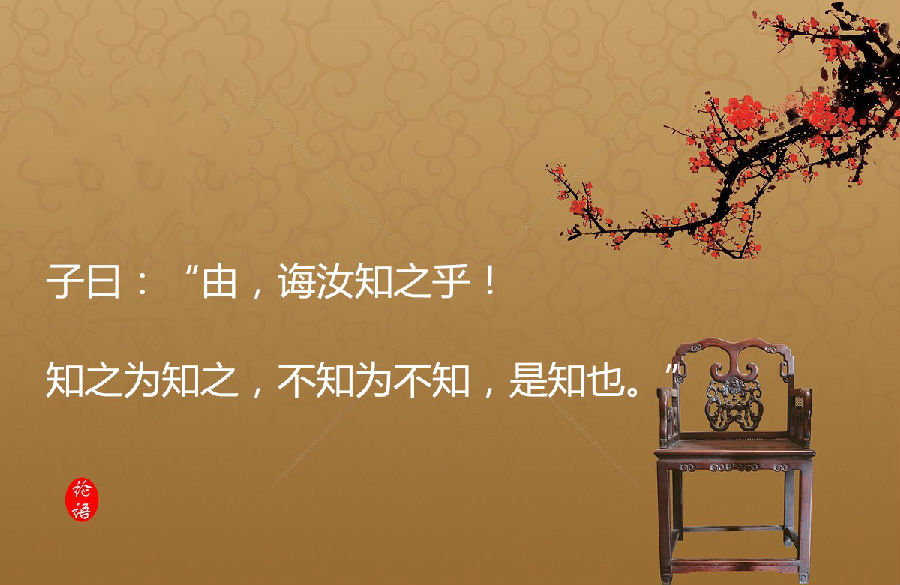The Master said, "See what a man does. "Mark his motives. "Examine in what things he rests.
子曰:“视其所以,观其所由,察其所安,
"How can a man conceal his character? How can a man conceal his character?"
人焉廋哉?人焉廋哉?”
The Master said, "If a man keeps cherishing his old knowledge, so as continually to be acquiring new, he may be a teacher of others."
子曰:“温故而知新,可以为师矣。”
The Master said, "The accomplished scholar is not a utensil."
子曰:“君子不器。”
Tsze-kung asked what constituted the superior man.
子贡问君子。
The Master said, "He acts before he speaks, and afterwards speaks according to his actions."
子曰:“先行其言而后从之。”

The Master said, "The superior man is catholic and not partisan. The mean man is partisan and not catholic."
子曰:“君子周而不比,小人比而不周。”
The Master said, "Learning without thought is labor lost; thought without learning is perilous."
子曰:“学而不思则罔,思而不学则殆。”
The Master said, "The study of strange doctrines is injurious indeed!"
子曰:“攻乎异端,斯害也已!”
The Master said, "Yu, shall I teach you what knowledge is?
子曰:“由,诲汝知之乎!
When you know a thing, to hold that you know it; and when you do not know a thing, to allow that you do not know it; this is knowledge."
知之为知之,不知为不知,是知也。”











